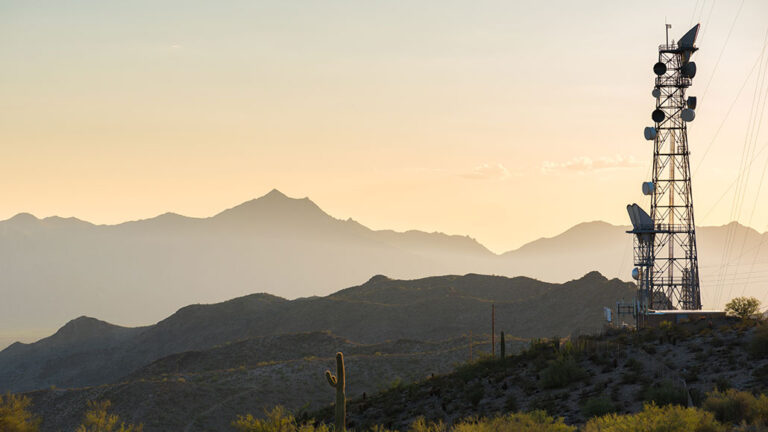antenna: (in physics) A device for picking up (receiving) electromagnetic energy.
cell: (telecommunications) A technology that uses many base stations to relay signals. Each base station covers only a small area called a cell. Phones that use this system are usually called mobile phones.
Chemicals: A substance formed by two or more atoms combining in a certain ratio and structure. For example, water is a chemical formed by two hydrogen atoms combining with one oxygen atom. Its chemical formula is H.2O. Chemical can also be used as an adjective to describe the properties of substances that result from various reactions between different compounds.
cloud: (computing) A network of computers (hardware) called servers connected to the Internet. Servers can be used to store data and computer programs (software) that can be accessed by one or many people simultaneously from anywhere in the world.
Cloud Computing: A computing service that stores data and accesses programs on computers called servers connected to the Internet, allowing files to be stored and work to be done on computers far away. These become “the cloud.” Using the cloud also frees up space on the local computer where someone is working. Files and programs on the cloud can be instantly accessed from anywhere. And these files and programs can be shared with many people at once.
compression: To press one or more sides of something to reduce its volume.
Data Centres: A facility that houses computing hardware, such as servers, routers, switches, and firewalls, as well as equipment that supports the hardware, such as air conditioning and backup power. Such centers can range in size from a portion of a room to one or more dedicated buildings. These centers house what is needed to create the “cloud” that makes cloud computing possible.
Data CompressionTo reduce the size of a file or other form of digital data.
DroneRemotely controlled unmanned aerial vehicles or missiles.
engineer: someone who uses science to solve problems. As a verb, engineer means to design a device, material, or process that solves some problem or unmet need. (verb) The name of the person who performs or carries out these tasks.
environment: The sum of everything that exists around some organism or process and the conditions that those things create. Environment can refer to the weather or ecosystem that some animal lives in, or the temperature and humidity (or the arrangement of things near the item of interest).
Federal Government: Belonging to or related to a country’s national government (and not to a state or local government within that country). For example, the National Science Foundation and the National Institutes of Health are both agencies of the U.S. federal government.
fertilizerNitrogen, phosphorus, and other plant nutrients added to soil, water, or foliage to promote crop growth or to replenish lost nutrients that can be utilized by plant roots and leaves.
Field: (in physics) A region in space where certain physical effects act, such as magnetism (produced by magnetic fields), gravity (produced by gravitational fields), mass (produced by the Higgs field), and electricity (produced by electric fields).
5G: 5 GHz frequency band used for new generation communications Sending a signal Mobile phone network.
frequency: The number of times some periodic phenomenon occurs within a specified time interval. (In physics) The number of wavelengths that occur in a particular time interval.
internet: An electronic communications network that allows computers around the world to connect to other networks to search for information, download files, and share data (including images).
Materials Science: The study of how a material’s atomic and molecular structure relates to the material’s overall properties. Materials scientists can design new materials or analyze existing materials. Analysis of a material’s overall properties (such as density, strength, and melting point) helps engineers and other researchers select the best materials for new applications.
network: A group of interconnected people or things.
Pandemic: An epidemic that affects a large portion of the population of an entire country or the world.
PesticidesA chemical or mixture of compounds used to kill insects, rodents, or other organisms harmful to cultivated plants, pets, or livestock, or unwanted organisms that invade homes, offices, farm buildings, or other protected structures.
Radio waves: A type of wave that is part of the electromagnetic spectrum and is currently used for long-distance communication. Longer than visible light waves, radio waves are used to transmit radio and television signals. They are also used for radar.
technologyThe application of scientific knowledge to practical purposes, especially in industry, or the device, process, or system resulting from such an endeavor.
wasteValueless material left over from a biological or other system that can be disposed of as waste or recycled for new uses.
waveDisturbances and changes that travel through space and matter while vibrating regularly.
Wifi: A wireless technology that allows various electronic devices (such as mobile phones and laptops) to network together using radio waves, sharing the same modem to connect to the Internet.
wireless: (in telecommunications) an adjective describing the ability of certain devices to send and receive radio signals over the air, often referring to Wi-Fi networks or networks operated by mobile phone companies to transmit data called by phone users.


